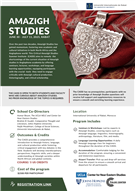February 17, 2016
6:00-8:00 PM
The Graduate Center, CUNY
365 Fifth Avenue, New York, NY
Room C198 (Concourse Level)
Reception to follow. Please bring ID to enter the building. More information can be found here.
A panel discussion with David Harvey, Nazan Üstündağ, Aslı Iğsız and Kamal Soleimani, moderated by Anthony Alessandrini.
Following the June 2015 general elections, Turkey’s ruling Justice and Development Party (AKP) renewed the state’s forty-year-long war against Kurds. This move ended the peace negotiations that had been taking place between the PKK (Kurdistan Workers’ Party) and the government since 2013. The resurgence of the war has led to increasing ultranationalist rhetoric in the media, public shaming of dissidents, and persecution of Kurdish and leftist politicians, further curtailing the already-limited political freedoms and basic rights in the country. Since August 16, 2015, the government has been imposing indefinite curfews in seven Kurdish-populated cities in Turkey. The curfews and clashes have resulted in the deaths of at least 198 civilians, while hundreds of thousands have been forced to migrate.
On January 10th, 1,128 academics released a peace petition condemning the Turkish state’s acts and declared that they “will not be a party to this crime.” The statement quickly went viral, mostly due to President Erdogan’s open targeting of the signatories by declaring them “traitors.” In less than two hours following Erdogan’s speech, the Turkish Higher Education Council announced that it would launch an investigation against those signatories who are affiliated with Turkish higher education and research institutions. Since then, academics who signed the petition have been publicly targeted, criminalized, and fired from their positions in universities. Despite increasing pressure from the government, media, and judiciary, the peace petition’s signatures had increased to 2,279 by January 20th.
This panel sheds light upon the ongoing attacks against academic freedoms and freedom of speech in Turkey. Perhaps more importantly, it also intends to publicize the current war in Kurdish cities and unmask the atrocities committed by the Turkish state -- the original intent of the Turkish academics’ peace petition.
Participants:
Nazan Üstündağ (via Skype)
Nazan Üstündağ is Assistant Professor of Sociology at Boğaziçi University. She received her PhD from Indiana University. Her interests include theories of modernity and postcoloniality, feminist studies, ethnography of the state, state and violence and resistance. Currently, she is working on a book manuscript on how state violence has been inscribed on the things, spaces, bodies, as well as visual and written documents in and on Kurdistan. Besides her academic interests, she also writes in political journals and newspapers. She is a founding member of the Peace Parliament and Academics for Peace, as well as a member of Women for Peace.
David Harvey
David Harvey is a Distinguished Professor at the Graduate Center of the City University of New York (CUNY); Director of The Center for Place, Culture and Politics; and author of numerous books. Harvey earned his Ph.D. from Cambridge University, was formerly professor of geography at Johns Hopkins, a Miliband Fellow at the London School of Economics, and Halford Mackinder Professor of Geography at Oxford. His highly influential books include The New Imperialism; Paris, Capital of Modernity; Social Justice and the City; Limits to Capital; The Urbanization of Capital; The Condition of Postmodernity; Justice, Nature, and the Geography of Difference; Spaces of Hope; and Spaces of Capital: Towards a Critical Geography.
Aslı Iğsız
Aslı Iğsız is Assistant Professor of Middle Eastern and Islamic Studies at New York University. Iğsız earned her PhD in Comparative Literature at the University of Michigan (2007). Her publications span a variety of issues that include the politics of memory; nation branding; liberal multiculturalism; alliance of civilizations and image wars; law, neoliberalism, and the Gezi Park Protests in Turkey. Her current book project, Humanism in Ruins: Liberal Multiculturalism, Memory, and the 1923 Greek-Turkish Population Exchange in Contemporary Turkey, examines the implications of diversity and cultural memory as a mode of humanism in the post-Cold War and the post 1980 military-coup era. Iğsız’s new project explores place branding, image, and discourses of civilization with regards to the Middle East.
Kamal Soleimani
Kamal Soleimani received his PhD from the department of Middle Eastern, South Asian, and African Studies at Columbia University (2014). Until recently, he worked as an Assistant Professor at Mardin Artuklu University (MAU), Turkey. Soleimani was one of the 14 international scholars who were fired by the MAU administration. Soleimani`s book on Islam and nationalism in the Middle East will be out in April 2016.
Anthony Alessandrini
Anthony Alessandrini is a Professor of English at Kingsborough Community College and the MA Program in Middle Eastern Studies at The CUNY Graduate Center, where he is also a member of the Committee on Globalization and Social Change. Alessandrini received his Ph.D. in English at Rutgers University (2000). He is the author of Frantz Fanon and the Future of Cultural Politics: Finding Something Different; the editor of Frantz Fanon: Critical Perspectives; and the co-editor of the JadMag special issue "Resistance Everywhere": The Gezi Protests and Dissident Visions of Turkey. He is a member of the faculty of the Brooklyn Institute for Social Research, and is a Co-Editor of Jadaliyya E-Zine.
Organized by Middle Eastern Studies Organization (MESO), sponsored by The Committee on Globalization and Social Change (CGSC), co-sponsors: Department of Anthropology and Middle East & Middle Eastern American Center (MEMEAC), The Graduate Center, CUNY.
.jpg)

















